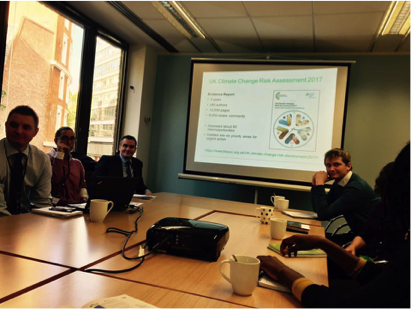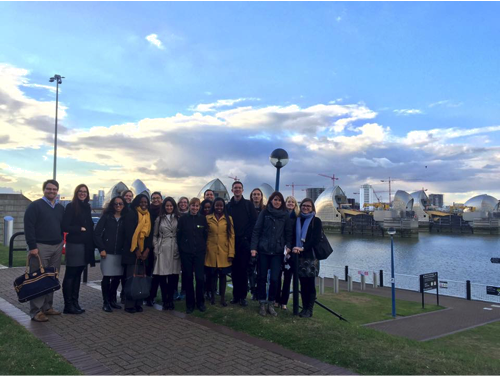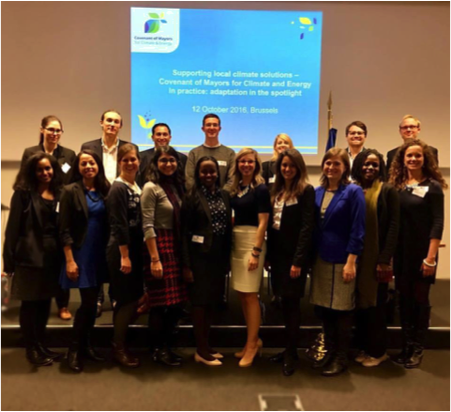by Salem Afeworki (ELP 2014) | Sustainability Manager, PacRim Engineering, Chile (in USA)
Climate Change, once considered an issue for a distant future, has moved firmly into the present. All over the world, precipitation & temperature patterns are changing, sea level is rising, the oceans are becoming more acidic, and the intensity and frequency of extreme weather events are increasing. The global climate is projected to continue to change over this century and beyond, but there is still time for us to act to limit the level of climate change and the extent of it’s damaging impacts in our livelihood and ecosystems.
Few months ago, I was accepted to become a Climate Adaptation Fellow for ELEEP (Emerging Leaders in Environmental and Energy Policy Network) – a joint program between the Atlantic Council (US) and the Ecologic Institute funded by European Union. On our first EU study tour (UK, Belgium and Netherlands) in October 2016, I saw the state of transatlantic relations in action for the first time, and it opened my eyes to common challenges and opportunities both continents are facing.It was obvious at my tour that all major sectors are affected by climate changes – including energy, transportation, agriculture, forests, water, human health and ecosystems. Below is a brief summary of what I found both in the US and EU in climate adaptation:
| Challenges | Opportunities |
|---|---|
| Government Commitment: on and off depending on which political party is in power. | Paris Agreement, Globalization and an exponential growth in new business ventures for ‘green/sustainable’ products to services. |
| Financing/Funding: who will pay for local/regional adaptation projects. | Advances in Technology & Science: E.g. Huge amount of data gathering & mapping technologies, advance in telecommunication, faster internet connections, methodologies & tools for robust decision making process etc. |
| Gap in Knowledge & Lack of Effective Communication: there is a gap between what science knows and what businesses/ community’s interpretation of the science (its application) | Space for Efficiency and Innovation: Businesses and the private sector driven by market competitiveness & the need to guarantee business continuity – are working on automation, operational efficiency and innovation to stay relevant in the contemporary world. |
| National Security & Immigration: There is a steady increase in the frequency and intensity of natural disasters - leading to critical infrastructure disruption, billions lost in damage – and leading to an increase in internal and external migration. | Society’s Awareness & Empowerment to demand for action in Climate Change: E.g. forcing local governments to develop rigorous air quality policies/regulations; and promote projects such as bike share programs, green roof, recycling projects, sustainable drainage system designs, renewables/energy transition projects etc. |
| Conflicting interests and Priorities: Developed countries are struggling to decide between economic growth following business as usual to maintain ‘global power status’ verses, less annual growth through green/circular economy. | The Realization of the Cost of Climate Action (or Inaction): Using multi-criteria decision Analysis (MCDA), Life Cycle Analysis (LCA) and Life Cycle Cost Analysis (LCCA) – we can now quantify direct and indirect economic/financial benefits of climate change projects/initiatives. |
Some cities and governments both in Europe and US have started working on adaptation plans that focus on infrastructure systems and public health. To be successful, these adaptation efforts require cooperative private sector, civil societies and governmental activities, supported by the right climate policies/incentives and energized young sustainability professionals fighting for the cause!
Full article and discussion: http://atlantic-expedition.org/climate-change-the-least-understood-global-challenge-of-the-21st-century/



